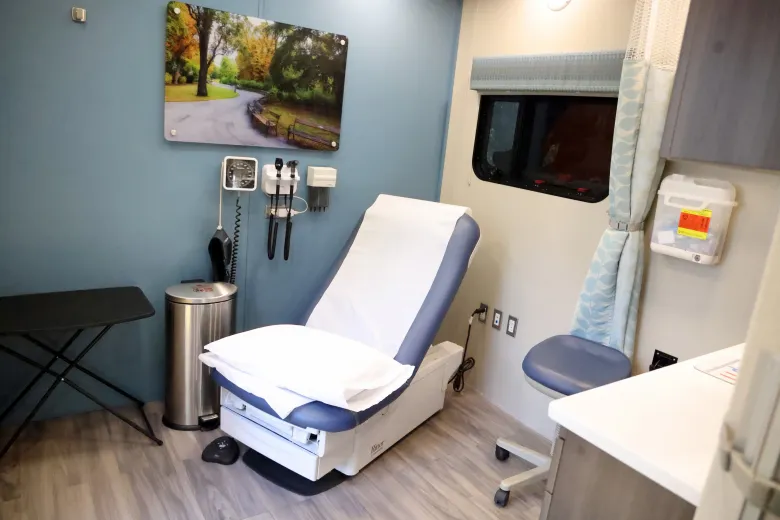Copyright Portland Press Herald

Maine could receive more than $700 million from a new federal rural health fund, but whether the money would be enough to keep rural hospitals from closing or cutting services in the face of looming Medicaid cutbacks is unclear, experts said. KFF, a national health policy think tank, has projected Maine would receive $707 million from the Rural Health Transformation Fund over the next five years. Maine would proportionally receive more than most states — $1,020 per rural resident, compared to the national average of $588 — according to KFF’s analysis of $37.5 billion of the $50-billion fund. Maine submitted its application to the Trump administration last week, seeking funding for technology and medical equipment improvements, telehealth, transportation and workforce development, among other requests. Awards are expected to be announced by the end of the year, with funding to begin in 2026. Medicaid cutbacks are slated to start in 2027. KFF estimates $137 billion will be slashed over the next decade in rural areas. According to the state, Maine is projected to lose $5 billion in all Medicaid funding over the next decade. Some experts say the money from the rural fund may not provide enough of a lifeline for struggling rural hospitals. Lisa Harvey-McPherson, vice president of government relations for Northern Light Health, said the fund is helpful, but rules set by the federal Centers on Medicare and Medicaid Services limit spending on hospital operations. She said the limitations on how the money can be spent are “quite disappointing.” Advertisement “Health care in Maine in the next three to five years is going to look different,” Harvey-McPherson said in an interview on Wednesday. “We won’t have the resources to sustain everything that we have.” The $50-billion rural health fund was included in the Republican budget bill at the request of Sen. Susan Collins, R-Maine. Collins and the rest of Maine’s congressional delegation, including independent Sen. Angus King, and Democratic Reps. Chellie Pingree and Jared Golden, voted against the bill. Collins cited the overall Medicaid cuts as a factor in her “no” vote. “The $50 billion fund will certainly help some of our rural hospitals survive during a very difficult time,” said Collins, in a statement on Wednesday to the Press Herald. “There may be some consolidation or closures, but the purpose of this fund is to help sustain the delivery of health care in rural communities.” Hospitals are already having financial difficulties, with Northern Light Inland Hospital in Waterville closing in June and several hospitals shuttering their birthing centers in recent years. The Center for Healthcare Quality and Payment Reform, a national think tank, projects that half of Maine’s 24 rural hospitals are at risk of closing in the near future. The Medicaid cuts would result in 28,000 Maine residents becoming uninsured, according to KFF. Advertisement Of the rural health fund, Jeff Austin, vice president of government affairs for the Maine Hospital Association, said in a statement to the Press Herald that “it’s clear this is not a hospital relief fund as some had originally envisioned.” “Nevertheless, there are several targeted efforts that could be helpful to both Maine hospitals and Maine people if they are realized,” Austin said. Harvey-McPherson said investments by the rural health fund in capital improvements, medical equipment, technology and medical records systems will help because rural hospitals were having problems finding money to fund those projects. “When technology exceeds its useful life, we have to fix it,” Harvey-McPherson said. “But hospitals are behind on their capital investments, because cash has been so tight. Upgrades to facilities and equipment need to occur across the state.” While the state could receive more than $707 million, KFF experts said they were only able to project spending from $37.5 billion of the $50 billion fund because the Trump administration hasn’t indicated how it would distribute the remaining $12.5 billion. Zachary Levinson, project director for the KFF Project on Hospital Costs, said in an interview Wednesday that it’s unclear how helpful the rural health fund will be in preventing hospital closures and other cuts to rural health care. Advertisement Levinson said the money mostly will not be used for general operating expenses for rural hospitals. “We’re still learning details about what states are doing in their applications,” Levinson said. “This is not like a bailout where we know exactly where the money is going and what it’s going to do. It’s potentially supporting a wide variety of initiatives, and we don’t know how effective those initiatives will be and who they will benefit.” Another issue, he said, is that the rural fund expires in five years, but Medicaid cuts could last longer. “Eventually these rural health funds will dry up, so to have more funding for rural areas would require additional legislation passed by Congress,” Levinson said.



